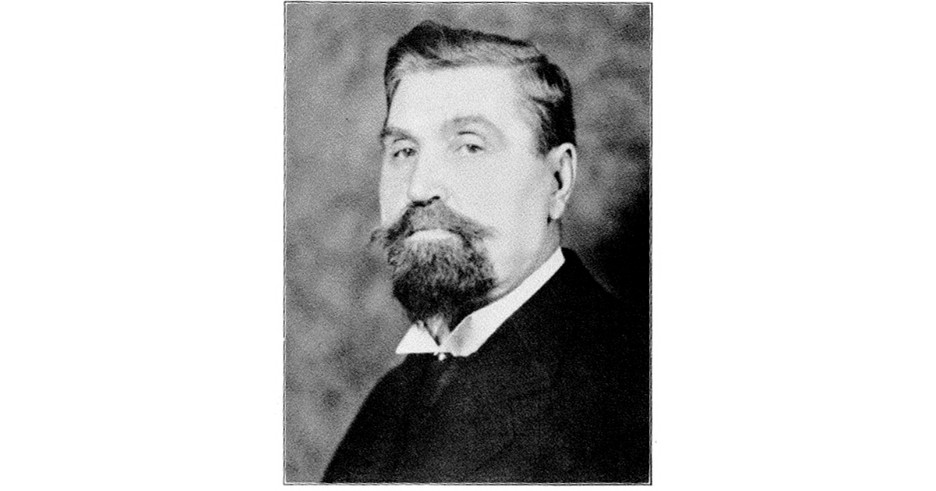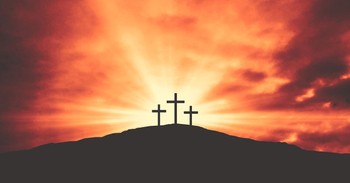
Ivan's mother frantically summoned the doctor because her ten-year-old son had just fainted and lay lifeless on the floor. When the doctor arrived, her worst fears were confirmed. Her son was pronounced dead, and his family sorrowfully laid the little boy in his coffin. But when the elder of his church arrived at his home and began to read the Bible over the boy in preparation for his burial, a miracle occurred—Ivan opened his eyes and began to cry! Later, when his mother told him these events, Ivan thought: Surely the power of the Omnipotent appointed me to live and to solve a special problem set by him for my life; another power, the power of death, wanted to cut my life short in its very beginning, but the power of the Omnipotent overcame, and I was left to be on earth. Whenever depression threatened Ivan, he could think back on these events and rest confidently in God's supreme will.
Early Confusion
Even as a boy, Ivan was serious-minded and interested in the Bible. His grandmother told him stories of religious persecution of his ancestors, the Molokans. His father told him Bible stories and sang hymns as they worked together in the garden. Ivan often prayed and read his Bible and believed he should devote his life to the Russian people. Even as a young person, he visited the nearby jail to help those who were imprisoned for their faith. But as Ivan grew older, life became more confusing. When he read Voltaire and Schopenhauer, troubling questions arose. But then, in November 1887, Ivan read Jesus' proclamation, "I am the Way, the Truth and the Life. No man comes to the Father but by me" (John 14:6). Paul's affirmation, "For me to live is Christ, to die is gain" (Philippians 1:21). He was confronted with the question, "What is the purpose of life?" Ivan repented of his previous unbelief and thanked God for his salvation. After this, his life was characterized by an optimism that was anchored in the belief that Christ had overcome the world, whatever temporary tribulations might occur.
Working for the Cause of Christ
Since Ivan wanted both to live for Christ and be useful to his fellow Russians, he resolved to work with his hands while having a Christian ministry, just as the Apostle Paul had. He studied mechanical engineering at the Institute of Technology in St. Petersburg while also teaching children and beginning to preach. However, religious meetings were perceived as "heretical" groups and were declared unlawful in Russia. To authorities these groups represented "foreign" influence, and they were feared as possibly seditious.
Ivan believed that a spiritual reform would improve the lot of the Russian people. He wrote, "No social or political reforms could prove successful unless a moral and spiritual reform in the people themselves was first realized." Even though it was illegal, Ivan put out an evangelical periodical called Besseda, filled with spiritual help and encouragement. His hope was that it would unify believers in the Gospel movement.
In 1898, Ivan returned to Russia where he married Anna Kazakova, a Christian woman. He worked for the Westinghouse Electric Company during the day, and in the evenings worked in the Restoration movement. He preached, wrote hymns, published periodicals, established a Bible college in St. Petersburg and organized youth groups. Often he did not go to bed until very late at night. Ivan gave his all for his cause and was twice imprisoned for his beliefs.
The year 1905, the same year Nicholas II restored the Duma, ushered in several years of religious freedom in Russia. In 1909, the All Russian Evangelical Christian Union was organized, and Ivan served as its president for 22 years. Through revolution and famine the evangelical movement in Russian grew. Then, in 1929, the Leninist government restricted religious societies, and severe persecution of Christians, both Protestant and Orthodox, began. At the time, Ivan was in America raising support for his church and was unable to return to his beloved Russia. Six years later, he died in Berlin. In spite of hardships, his optimistic faith remained. Two years before his death he wrote,
As I look back, analyzing the events of the past fifteen years, I cannot but see that every incident, every hindrance, even persecution and imprisonments, served definitely and positively for the growth of the Evangelical Christian Movement in Russia. Many of these events were sad and even tragic, but nevertheless they added to the development of the Kingdom in my country. Romans 8:28.
The Origins of the Russian Evangelical Movement
Christianity came to Ukraine in 988, when Prince Vladimir of Rus embraced the Greek Orthodox faith after examining the Catholic and Moslem religions. He was baptized and ordered his subjects baptized in the Dnieper River. As his territories expanded, the Orthodox faith went with it and became the official religion of the Russian people.
The Orthodox Church believed in the timelessness of its message, and change was not a part of its doctrine or practice. Liturgy continued to be performed in Old Slavonic even after it ceased to be a living language, very much as the Roman Catholic Church continued to use Latin in its ceremonies until the 1960s. Liturgy was the life of the church and was the chief form of instruction for the people. There were many famous preachers, but in the hinterlands, the clergy were frequently illiterate and incapable of providing proper religious instruction except at the most basic level. The Tsar, in lieu of the ancient Patriarch whose office was abolished by Peter the Great, appointed bishops. The Orthodox Church was not in touch with the European Reformation.
At the end of the eighteenth century, Queen Catherine II encouraged foreign immigration to Russia. Many of these immigrants were German Mennonites and Lutherans who were permitted to practice their faith in their adopted land. Although Russia had a Slavonic translation of the Bible as early as the ninth century, it was not until 1813, when Tsar Alexander I established the Russian Bible Society, that Bibles were translated into vernacular Russian by the Theological Academy of St. Petersburg under the direction of the rector, Filaret, future Metropolitan of Moscow. These Bibles were distributed throughout Russia. Another translation was completed in 1876 and used by both the Orthodox and Baptists. A Scotsman, known in Russia as Vasilii Ivanovich, spent sixty years distributing Bibles throughout the land.
It was during the 1860s that the Russian Evangelical Movement sprang up in three different areas: St. Petersburg, Odessa and the Caucasus. In St. Petersburg, the movement began among the aristocracy with young Misha Chertkoff, the son of a Russian general. Influenced by his tutor, Misha began to share his beliefs with his mother, who paid no attention until the boy became seriously ill. As he lay dying, he joyfully asked Jesus to take him, and he urged his mother to believe in Jesus Christ. After Misha's death, his mother left her pleasure-seeking life and began reading the Bible. She consulted Orthodox priests, but was dissatisfied with their answers. While traveling through Europe, she met Lord Radstock in Switzerland and invited him to preach in her home. Many of the Russian aristocracy were converted, including Mrs. Chertkoff's brother-in-law, Colonel Pashkoff, and Count Korff. These men gave vast sums of money to distribute Bibles and establish orphanages and hospitals. They were later banished from Russia for their religious activities.
In the city of Odessa, literate peasants began reading the new Russian Bible. The German Lutherans and Mennonites guided them in their reading, and soon Bible study and prayer meetings sprang up throughout the villages. The Orthodox clergy were impressed with the piety of the immigrant believers.
In the Caucasus, a spiritual awakening arose among the Molokans, who rejected the rituals, icons, fasting and veneration of relics that were part of the Orthodox Church. Like other religious sects in Russia, the Molokans (whose name comes from "moloko," milk, a food they used during Orthodox fasts, when it was prohibited) had no legal standing, which meant their marriages were not recognized, their children were illegitimate, and schooling and employment were restricted.
Their meetings were held secretly to avoid arrest, and many evangelical believers were banished to isolated provinces or settlements to keep them separated from Orthodox Christians.
The Martin Luther of Modern Russia
Because of his hymn writing and influence on Russian religious music, Ivan Prokhanoff has sometimes been called "The Martin Luther of Modern Russia." Ivan knew that music and hymns were important to the life of Christians. Because of this, he wrote hymns and published several hymnbooks. His first, The Gusli, meaning harp, was published in 1901. This book was even used by some Orthodox Churches.
Ivan believed that evangelical songs should show the optimism of the Christian faith, lightened by Christ who had caused believers to pass from death to life. He disliked the solemn and sonorous music of the Orthodox Church, even the music written for it by contemporary composers. The hymns he loved represented his Evangelical beliefs fully, and he left a legacy of compositions for his fellow believers.
The text of one of Ivan's hymns can be seen below. He celebrates the freedom he has found in Christ, despite the fact that he was in prison at the time he wrote the hymn.
Outside the prison chamber
The guard walks slowly by.
A song of glad thanksgiving
Is loudly sung on high.
The people passing swiftly
Can hear its clarion call;
They marvel: why this gladness
Inside a prison wall?
Who sings, within, such praises?
They wonder, as they stare;
But, "Brethren of the Gospel,"
That is the name they bear.
Says one who pauses, showing
That his face, too, is bright;
"These are their songs of rapture
To Christ, Who is their Light.
"They sing in fullest measures
When heavy falls the rod;
No prison bars or shackles
Restrain the truth of God."
In vain the guard is waiting;
This song will never cease
Till God's own will and pleasure
Shall be fulfilled in peace.
The distant plains of Russia
Shall now receive the Word;
Her forests and her mountains
The joyful sound have heard.
Through all the lands and nations
God's Word shall conqueror be,
And bring souls out of prison
To rapturous life and free.
See where, beside the prison,
Men stand to hear the song;
And many, taking Jesus,
Forsake their life of wrong.
The guard, most deeply stirred now,
Has laid his musket by;
He listens—grasps the meaning—
His doubts all fade and die.
His eyes grow clearer, brighter,
He gazes up the street,
While his soft humming echoes
The prisoner's music sweet.
More fully now he gathers
The meaning of the song;
For he has found his freedom
From sin, and shame, and wrong.




